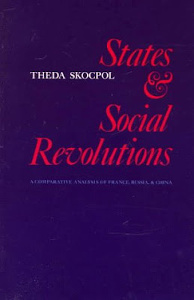Econometrics is an application of statistical methods to economic data in order to give empirical content to economic relationships. More precisely, it is "the quantitative analysis of actual economic phenomena based on the concurrent development of theory and observation, related by appropriate methods of inference". An introductory economics textbook describes econometrics as allowing economists "to sift through mountains of data to extract simple relationships". Jan Tinbergen is one of the two founding fathers of econometrics. The other, Ragnar Frisch, also coined the term in the sense in which it is used today.
Causality (also called causation, or cause and effect) is influence by which one event, process, state, or object (acause) contributes to the production of another event, process, state, or object (an effect) where the cause is partly responsible for the effect, and the effect is partly dependent on the cause. In general, a process has many causes, which are also said to be causal factors for it, and all lie in its past. An effect can in turn be a cause of, or causal factor for, many other effects, which all lie in its future. Some writers have held that causality is metaphysically prior to notions of time and space.
A case study is an in-depth, detailed examination of a particular case within a real-world context. For example, case studies in medicine may focus on an individual patient or ailment; case studies in business might cover a particular firm's strategy or a broader market; similarly, case studies in politics can range from a narrow happening over time like the operations of a specific political campaign, to an enormous undertaking like, world war, or more often the policy analysis of real-world problems affecting multiple stakeholders.

Social research is a research conducted by social scientists following a systematic plan. Social research methodologies can be classified as quantitative and qualitative.

Quantitative research is a research strategy that focuses on quantifying the collection and analysis of data. It is formed from a deductive approach where emphasis is placed on the testing of theory, shaped by empiricist and positivist philosophies.

Comparative politics is a field in political science characterized either by the use of the comparative method or other empirical methods to explore politics both within and between countries. Substantively, this can include questions relating to political institutions, political behavior, conflict, and the causes and consequences of economic development. When applied to specific fields of study, comparative politics may be referred to by other names, such as comparative government.

Barrington Moore Jr. was an American political sociologist, and the son of forester Barrington Moore.

Theda Skocpol is an American sociologist and political scientist, who is currently the Victor S. Thomas Professor of Government and Sociology at Harvard University. She is best known as an advocate of the historical-institutional and comparative approaches, as well as her "state autonomy theory". She has written widely for both popular and academic audiences. She has been President of the American Political Science Association and the Social Science History Association.

States and Social Revolutions: A Comparative Analysis of France, Russia and China is a 1979 book by Theda Skocpol, published by Cambridge University Press, that examines the causes of social revolutions.

A sociological theory is a supposition that intends to consider, analyze, and/or explain objects of social reality from a sociological perspective, drawing connections between individual concepts in order to organize and substantiate sociological knowledge. Hence, such knowledge is composed of complex theoretical frameworks and methodology.
Historical institutionalism (HI) is a new institutionalist social science approach that emphasizes how timing, sequences and path dependence affect institutions, and shape social, political, economic behavior and change. Unlike functionalist theories and some rational choice approaches, historical institutionalism tends to emphasize that many outcomes are possible, small events and flukes can have large consequences, actions are hard to reverse once they take place, and that outcomes may be inefficient. A critical juncture may set in motion events that are hard to reverse, because of issues related to path dependency. Historical institutionalists tend to focus on history to understand why specific events happen.

Historical sociology is an interdisciplinary field of research that combines sociological and historical methods to understand the past, how societies have developed over time, and the impact this has on the present. It emphasises a mutual line of inquiry of the past and present to understand how discrete historical events fit into wider societal progress and ongoing dilemmas through complementary comparative analysis.
Quantitative methods provide the primary research methods for studying the distribution and causes of crime. Quantitative methods provide numerous ways to obtain data that are useful to many aspects of society. The use of quantitative methods such as survey research, field research, and evaluation research as well as others. The data can, and is often, used by criminologists and other social scientists in making causal statements about variables being researched.

Causation refers to the existence of "cause and effect" relationships between multiple variables. Causation presumes that variables, which act in a predictable manner, can produce change in related variables and that this relationship can be deduced through direct and repeated observation. Theories of causation underpin social research as it aims to deduce causal relationships between structural phenomena and individuals and explain these relationships through the application and development of theory. Due to divergence amongst theoretical and methodological approaches, different theories, namely functionalism, all maintain varying conceptions on the nature of causality and causal relationships. Similarly, a multiplicity of causes have led to the distinction between necessary and sufficient causes.
Process tracing is a research method used to develop and test theories. It is generally understood as a "within-case" method to draw inferences on the basis of causal mechanisms. It has been used in social sciences, as well as in natural sciences.
Causal inference is the process of determining the independent, actual effect of a particular phenomenon that is a component of a larger system. The main difference between causal inference and inference of association is that causal inference analyzes the response of an effect variable when a cause of the effect variable is changed. The science of why things occur is called etiology, and can be described using the language of scientific causal notation. Causal inference is said to provide the evidence of causality theorized by causal reasoning.
Social revolutions are sudden changes in the structure and nature of society. These revolutions are usually recognized as having transformed society, economy, culture, philosophy, and technology along with but more than just the political systems.
Causal analysis is the field of experimental design and statistics pertaining to establishing cause and effect. Exploratory causal analysis (ECA), also known as data causality or causal discovery is the use of statistical algorithms to infer associations in observed data sets that are potentially causal under strict assumptions. ECA is a type of causal inference distinct from causal modeling and treatment effects in randomized controlled trials. It is exploratory research usually preceding more formal causal research in the same way exploratory data analysis often precedes statistical hypothesis testing in data analysis

Michael Hechter is an American sociologist and Foundation Professor of Political Science at Arizona State University. He is also Emeritus Professor of Sociology at the University of Washington.
Social Origins of Dictatorship and Democracy: Lord and Peasant in the Making of the Modern World (1966) is a book by Barrington Moore Jr.









